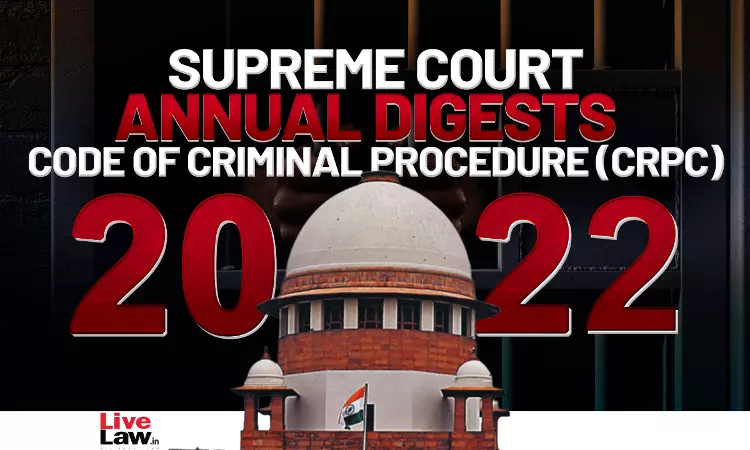Supreme Court Annual Digest 2022-Code Of Criminal Procedure (CrPC)
LIVELAW NEWS NETWORK
6 Jan 2023 9:17 AM IST

Next Story
6 Jan 2023 9:17 AM IST
Code of Criminal Procedure 1973 Code of Criminal Procedure, 1973 - Appeal against High Court order setting aside criminal proceedings on the ground that taking cognizance by magistrate was barred by limitation - Allowed - The High Court made a fundamental error in assuming that the date of taking cognizance i.e., 04.12.2012 is decisive of the matter, while ignoring the fact that...
